The Alters (Series X): An Existential Survival Game that's as Cerebral as it is Strategic
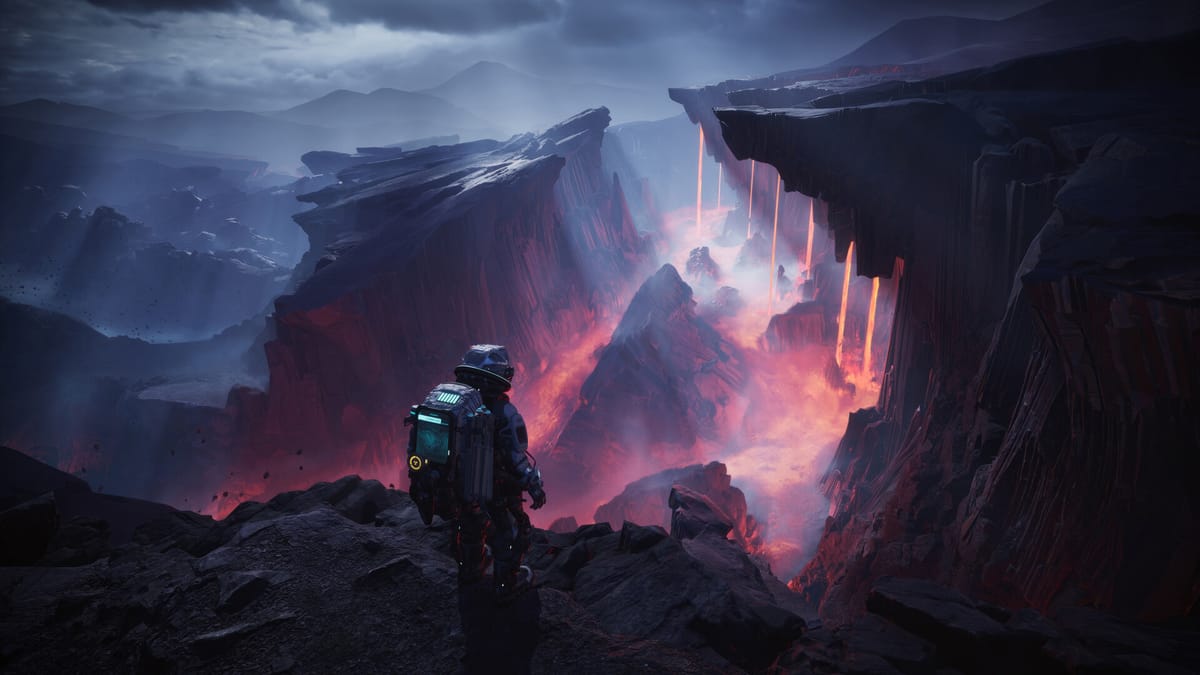
Ever wondered how things could have been? What if you had made a different decision, could you have ended up elsewhere? Would your life be better, worse? In The Alters, one of the first things you can do is view the main character's life set out as a list of key decision moments. A lot of them look like wrong decisions: not standing up to an abusive father; giving up on your academic potential; ending up with a failed marriage. Where they led you was to be a worker on a space mission, far flung stuff where you are sent out to harvest resources and to, hopefully, improve life on earth. Tragically, only you have survived after a system failure. You are alone on a hostile planet with only a base that needs multiple people to staff it, and the memory of all your mistakes, for company. That is, until you learn this base's secret: you can live out those what-ifs, you can make different decisions.
The Alters is a survival game, a blend between a solitary survival experience and a resource management base builder. Primarily, though, it is a narrative game and it uses these other genres to complement this beautifully. On this planet, you discover a remarkable material that the people on Earth have been looking for, here it occurs naturally and you have the tech to ship it back. It's an accelerating agent and general miracle resource that will change everything – and it also helps you to operate the base's Quantum Computer. That device is where your life is mapped out; with some of this resource (Rapidium), and another rare item, you can 'Branch' and create an Alter. In other words, pick certain decision points and create a copy of yourself that went down that path instead. A whole new life stream is mapped out. In one you became a doctor, another a botanist, another a technician – and more. These are real possibilities with real memories and you animate them, on your ship, in a cloned version of your body. They are forced into life, in a body that isn't quite their own and are taken away from their actual experience, suddenly existing as your crew, there to help your survive.
It's an incredible premise and is one that manages to create an idea of solitude and community at the same time, balancing disparate approaches to the same genre very intelligently. The obvious confusion, and reluctance to exist in this state, adds an immediate tension to the management side of things. However, there's also a lingering idea of predestination – or a more moderate thesis about our choices being our identity, rather than alteration points. Every one of these paths ended up going on this mission in their reality, in different roles and for different reasons, but they ended up there. It is a narrative contrivance to make them used to the core aims – necessary for the story and gameplay to work – but it's also just a wonderful way of planting a thematic seed that is nurtured throughout the game. This is not a game about multiple selves, it is about your one self and about bettering yourself. The point is more about the need to choose well, and to live well. Broadly speaking, it's a survival game where you are incentivised to do multiple playthroughs, another way that the idea of choice is made to matter. There are more Alters available than can be take on in one campaign, each with a clear gameplay utility (usually attached to a core system: a lot of the game is mining resources, a miner would help; you also need to grow plants to make food, a botanist would help). Who you pick ends up saying something about your character but, as well as linking to mechanics, each Alter has their own quest line and a specific lesson to teach you. It is the tiniest bit clunky but in a thematic and effective way, working alongside this Alter and trying to meet their needs as well as the wider mission's makes them open up to you. This, as they are you, allows you to open up. On the simplest level, you gain access to an emotional state (like 'forgiveness') that opens up dialogue prompts but, on a more resonant level, it is excellent character building.
You really wouldn't expect it of the genre, but The Alters is a superb character study. It is an interrogation of the self and the gameplay layers facilitate this so well. After all, resource management games are games of constant choices. Time keeps ticking by and you have to survive, that means keeping a lot of plates spinning: minerals coming in, food being created, staff happy, facilities powered, broken things need to be fixed, etc., etc.. You play as one character but can assign the work of the Alters you create – and how you assign them will affect what they think of you and their behaviour in the game. The Alters is really good at pushing you forward, at every point there is a clear goal and the subgoals that make up this overarching aim keep you invested in the systems. What you are doing in the first of three areas is ostensibly what you are doing at the same, it's the same basic economy that you need to stay on top of. But the game always finds brilliant ways to incentivise engagement, and to add tension. Narrative is put first but always facilitated by these gameplay choices. You may be letting your doctor alter cook a feast for the whole crew but this will involve getting materials ready, fixing a kitchen and some dialogue trees. The feast itself will take up a chunk of time and time is also a resource. It is really well balanced, though, the clock is always ticking down but it feels more there to give the idea of tension rather than to create frustration. You are pushed to keep making decisions but things are really manageable. The narrative elements push you in different directions and this works because the core loop is very sustainable, the experience becomes trying to get back to this core loop while the needs of the story pull you away – and this is very satisfying.
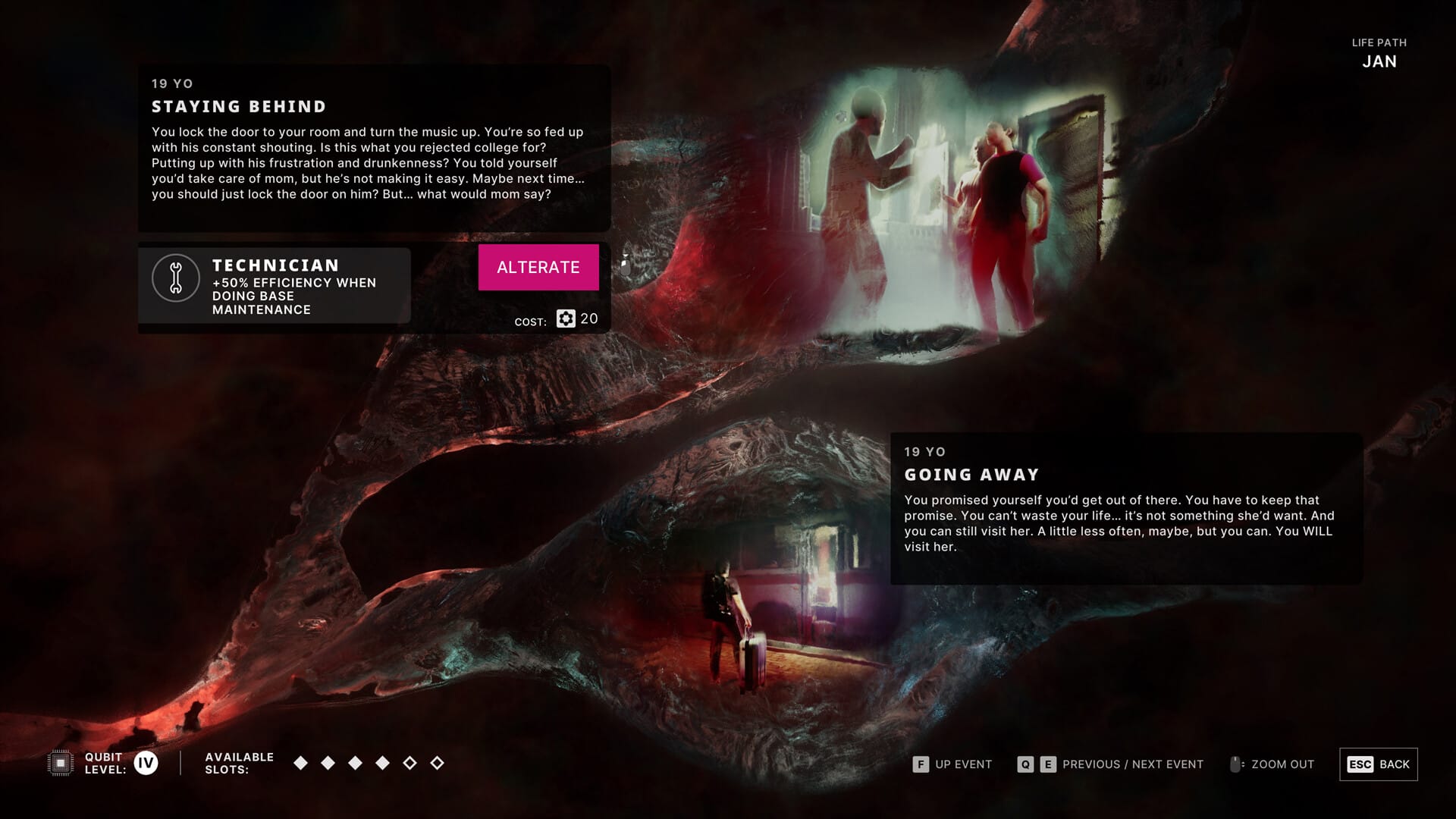
It is a very well made survival experience, the systems are in smart conversation with each other and all interactions feel tactile and purposeful. It is very easy to get your head around what you need to do, the challenge is pulling it off and pulling it off under pressure while being pulled in multiple directions. This all goes back to metaphor, the gameplay structure being a symbol for the human experience and something existential. Living is about surviving but it's about so much more than that, the gameplay systems start to replicate this idea of being alive in a very resonant way. To persist is manageable and you can dial in, actually living and succeeding involves taking chances and spinning plates. It is so easy to fall back on the solo elements of this game, just doing it all yourself and keeping the protagonist alive – but doing so means wider things fall apart. Living is difficult, you can get caught in rhythms that feel like success but are merely coping mechanisms or distractions. In this way, playing the game becomes very cerebral. The fact that each character is really the same character means it is a self dialogue, a dialectic on personal identity. By exploring the what-ifs, the game actually focuses on the whats themselves. Our decisions are points that converge us, not diverge us. Our potential is our self, The Alters is a therapeutic game about literally learning to live with yourself, being faced with you at your best and worst – and realising those are still you. The message is growth, the game mechanics of survival and persistence mapped out as a grand metaphor about development and improvement. Beyond metaphor, it is also a very resonant experience. The specifics of the narrative are very engaging, even as a sci-fi story. The little moments are done well, the character writing is impressive (especially within the constraint of making divergent characters out of the same character). On the whole, it's just a great narrative experience that nails the small and silly moments as well as it does the wider, philosophical beats.
This being said, it can be a rough experience. In my playtime, I ran into a number of deeply obtrusive bugs. Mandatory quests would fail for no discernible reason, the game would freeze in specific moments and certain things just wouldn't work. These will get ironed out but they also reveal some of the game's limitations. The save system is incredibly frustrating. You play one day at a time, but it doesn't actually let you reload every day. If you are in a certain micro-narrative with peril ticking down, it will only allow you to load back to the beginning of that sequence of days. But the game isn't linear, so you can be making progress in a number of directions that will then be lost. And, if you need to quit or the game crashes, that's a whole lot of re-treading to do. There's also a general obtuseness around some goals, sometimes it's the game not working properly but often it feels very arbitrary. If your Alters rebel it's a game over, I had a mission that asked me to do one thing to keep them from rebelling and I did that thing in the timeline. Yet, they rebelled and I got a harsh game over, and had to load back from a decent distance. To solve this, I had to speak with one Alter after doing the objective and the game then registered it in line with the quest – though the quest description was still just to do that thing. It's a touch arcane and, again, more irritating as the design pushes you to be exploring your own path through the game, working on multiple things at once rather than fitting in narrow constraints. The game also launched with undisclosed use of generative AI, for apparent placeholder assets that hadn't been removed. Placeholder elements make it into game, and it's hardly surprising that more games are using AI in their development pathways. Still, it's a cutting out of the human – and is a regressive choice — in a game all about the importance of human and choices. The game highlights the human touch, how we nurture each other and our potential. The use of such technology seems to run counter to its ethos and does dilute the game's cumulative impact.
In general, there are certainly rough edges to The Alters. It can also be a bit repetitive. It does play well within its scope, though, tying your possibilities into narrative nicely rather than being a much more expansive survival game. However, it can feel limited. There is narrative justification for being railroaded but, after playing through one time, I don't feel the want to go through the actual experience again. I'd love to see the other Alters but a lot of the game is doing the same thing, in very defined ways, in which the story events make it much more engaging than it would otherwise be. A more divergent game feels stuck inside, sometimes, with a richer survival and strategic experience. Saying this, what is there is a stellar companion for the story it wants to tell and is a great way of conveying powerful themes. The one playthrough really felt meaningful and the choices may not push you towards replaying but they do make your actual playthrough carry a weight it otherwise wouldn't. The Alters is a special game, and a really cohesive one. A compelling exploration of the self, a rich character study and an engaging strategy game where each part of this description is enhancing the rest.


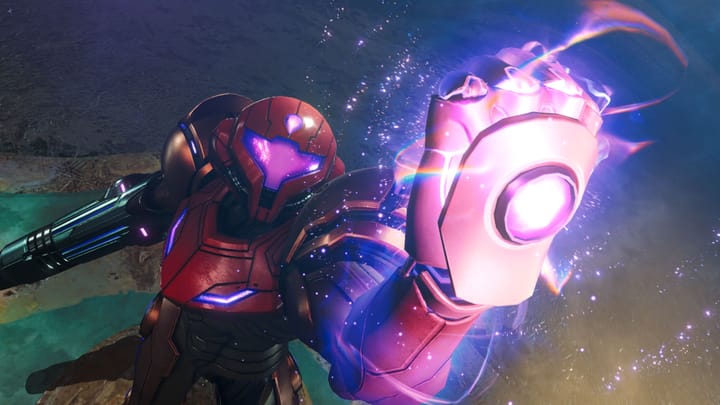
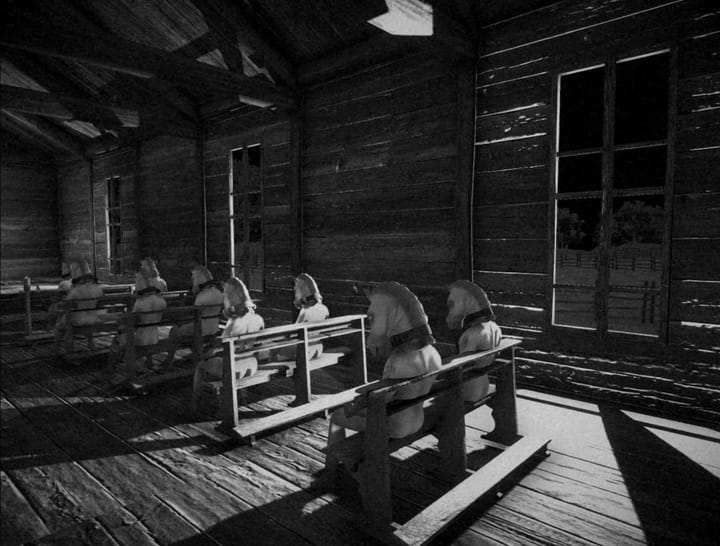
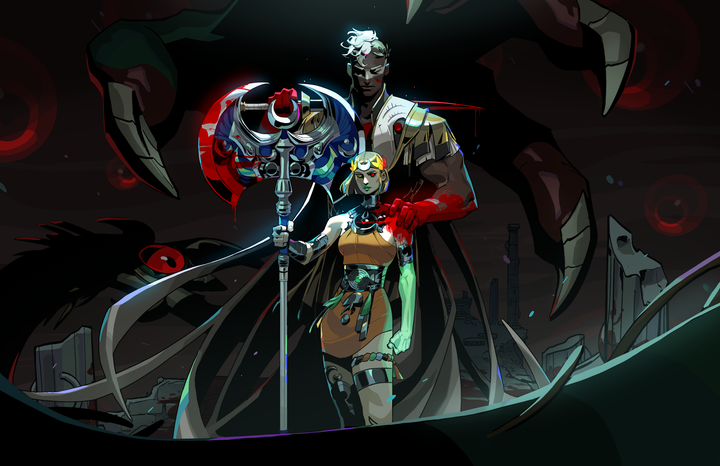
Comments ()